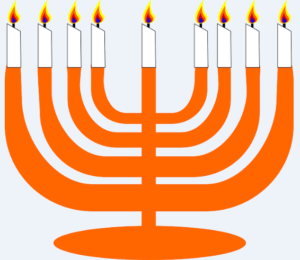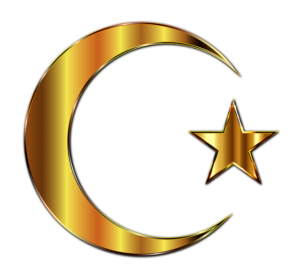Free PSHE Teaching Resource: Comparative Religion With Embedding Diversity
This half term sees the UK’s four biggest religions all marking festivals which makes it a great opportunity to do a comparative religion lesson and embed diversity whilst you’re at it. So here are the festivals, what they’re about and how they’re celebrated in the UK with a guide for discussion at the end.
Chanukkah: The word means rededication, and this Jewish festival starts on the 25th of the Hebrew month of Kislev and lasts 8 days and nights
During the reign of Syrian King Antiochus, the observance of Judaism was banned and the Temple in Jerusalem was desecrated. During the year 168 BC on the 25th day of Kislev, a heavily outnumbered rebellion lead by a local Jewish family known as the Maccabeas, defeated the Syrian army. Upon reentering the Temple to purify and reconsecrate it they discovered that the Ner Tamid (everlasting light) had only enough oil to burn for one day. However, this one jar ended up lasting 8 days.
RITUALS: to commemorate the miraculous lasting of the oil for 8 days
- Each night of the holiday blessings are recited, candles lit and inserted into a 9 branch candelabra known as a ‘menorah’ or ‘chanukkiah’.
- Fried foods are eaten, specifically latkes and doughnuts.
ADDITIONALLY
It has become popular to exchange gifts within families and children are encouraged to make charitable donations.
Christmas: Most commonly observed on the 25th December
Christmas commemorates the birth of Jesus Christ which is thought to be between 6 and 4 BC though no-one knows the actual date, month or year. It is a major festival and public holiday and has become a cultural as much as a religious celebration observed by millions of Christians and non-Christians. Though ritual and traditions vary between churches, religious Christians will attend a Church service and all celebrants participate in gift giving and a special, family-focused meal.
TRADITIONS:
- The decoration of homes with special, often red, gold and/or green decorations and nativity scenes.
- The sending of Christmas cards with holiday greetings.
- The preparation and eating of a family meal centring around roast poultry that is eaten on Christmas Day.
- Gift giving associated with the tradition of St Nicholas and the presentation of gold, frankincense and myrrh by the magi to the infant Jesus.
Diwali: This is the Hindu festival of light and takes place over 5 days and nights
Diwali means ‘series of lights’, is one of the major festivals in Hinduism and takes place on the 15th of Kartika in the Hindu calendar. The festival honours Rama-chandra, his wife Sita and Lakshmana his brother on their return from 14 years of exile as well as Lakshmi the goddess of wealth. Hindus light diyas (lamps) to help Lakshmi, Rama, Sita and Lakshmana find their way into their homes and also to celebrate the power of good of evil, knowledge over ignorance, hope over despair and most of all light over dark.
TRADITIONS:
- Preparation and in-depth cleaning of the home.
- Decorating it with lamps.
- Making sweets.
- Dressing in new clothes.
- Gift giving among family, often home made sweets.
- Fireworks displays.
Mawlid: This is an Islamic festival that commemorates the Birth of the Prophet (peace be upon him) though it is not an occasion celebrated by all Muslims
For those who do it is most commonly observed on the 12th day of Rabi al-awwall, the third month of the Islamic calendar. The birth of the Prophet (peace be upon him) is considered to be a major blessing for all of humanity. However, the date is also when the Prophet (peace be upon him) died so festivities are restricted.
TRADITIONS:
- Religious leaders and parents recite stories of the Prophet (peace be upon him) to their children.
- Songs are sung about him.
- Muslims think about the Prophet’s (peace be upon him) teachings, character, what he suffered and how he forgave so many.
- Donations are made to charity.
- Families meet to feast together and share food with the poor.
Questions to Stimulate a Diversity Discussion
- Why does celebrating our own cultures matter?
- Is it important to show respect for other peoples belief systems/cultures?
- What can these celebrations add to the communities we live in?
- How can we do this in school?
If you’re interested in other ideas for teaching comparative religion then you might find this other blog interesting. Maybe you’ve got some experience of teaching comparative religion and have some top tips you’d like to share here with the Prospero Community?
Teaching Blog
No results found.....



